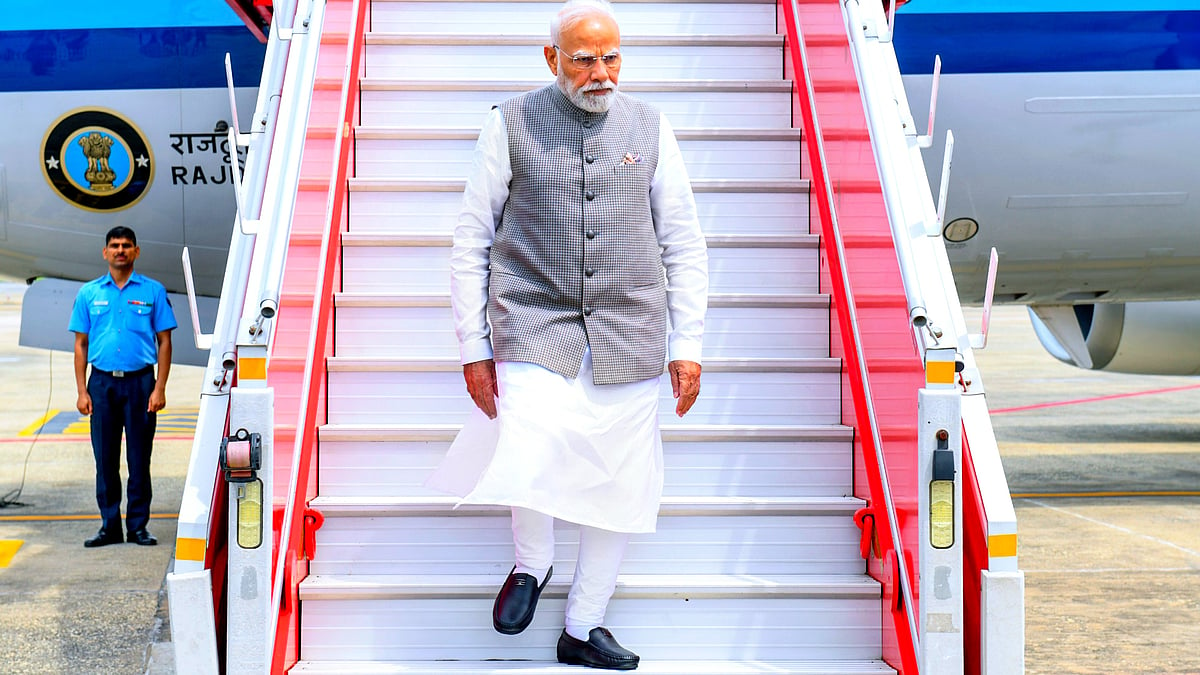Opinion
What will Prime Minister Modi do in Manipur?
Manipur has been burning for 29 months, and the PM has not thought of visiting the state or even making a political statement

Manipur has been burning for 29 months, and Prime Minister Narendra Modi has not thought of visiting the state or even making any political statement except to condemn the humiliation of two Vaiphei women who were stripped naked and dragged from their vehicle.
Everyone is intrigued by the sudden decision of the prime minister to visit Manipur. From media reports, it seems he will be in Manipur only for three hours. What can he hope to achieve in those three hours?
The situation in Manipur is such that no one person or organisation can represent Manipur as a whole, and within the various communities — Meitei, Naga, Kuki, Pangal (Meitei Muslims) and the 'Mayangs' (outsiders, including Marwaris living there for nearly a century) — there is no one who has the moral authority to speak on behalf of all.
Within each community, there are too many divisions (many created by intelligence agencies) for any one leader, organisation, or party to have the moral authority to speak on everyone's behalf.
Civil society organisations in India have not contributed to resolving the situation and their patronising attitudes have resulted in greater alienation.
The Meiteis, the majority community, have some intellectuals who could have played a positive role but they have been silenced by the extremist Arambai Tenggol. The targets of the extremist organisations — both Arambai Tenggol and Meitei Lipun — have included the Meiteis who have dared speak out against them.
The situation on the Manipur-Myanmar border is volatile, with heavily armed insurgents on both sides of the boundary, and the Indian armed forces' capacity to impose the law weakened.
Attempts at peace-making have failed because of divisions along ethnic lines and decades of deadly identity politics; the Indo-Naga talks which began in 1997 have reached nowhere, with Isaac Swu dead and the nearly 90-year-old Th Muivah not keeping very well. The National Socialist Council of Nagalim (NSCN) is virtually leaderless and has split into many factions.
Published: undefined
The political parties and the unprincipled alliances without a vision for Manipur’s future is another factor why the Manipur crisis remains unresolved.
I carry no brief for any particular community or organisation, but I do have the interests of Manipur at heart, and more than that of India. Manipur, with its multi-religious and multi-cultural diversity, the shared history and yes, shared experience of alienation from India, make it a challenge for anyone who wants a united Manipur and united India.
Could it be possible for the district councils to be made truly autonomous, with funds from the Centre coming directly to them and not through the Manipur Assembly? Speaking of the Assembly, it has to be reorganised because as of now, the Meiteis have 40 seats and the Hill people have just 20, so they cannot effectively intervene in any issue even if it concerns them directly. Can the Assembly be more representative?
Even if everyone agrees, civil society would need to play an important role in checking corruption at the local level. It would have to mediate between armed insurgents who siphon off funds and government departments.
The government can set up institutions, but the people have to guard them and make them function. The funds need to go to the people, all people who have grown poorer over the years. The insurgent groups have lost their political direction and do not represent the interests of the majority.
As for healing the deep wounds, it will take time. It is necessary to have some process of truth and reconciliation. Without that, we cannot have justice. As for the wall between India and Myanmar, if only the prime minister visits Moreh and discovers for himself how bridges ensure national security, not walls.
Nandita Haksar is a human-rights lawyer, teacher, campaigner and writer who has represented victims of Army atrocities in the North-East, among other groups
Published: undefined
Follow us on: Facebook, Twitter, Google News, Instagram
Join our official telegram channel (@nationalherald) and stay updated with the latest headlines
Published: undefined